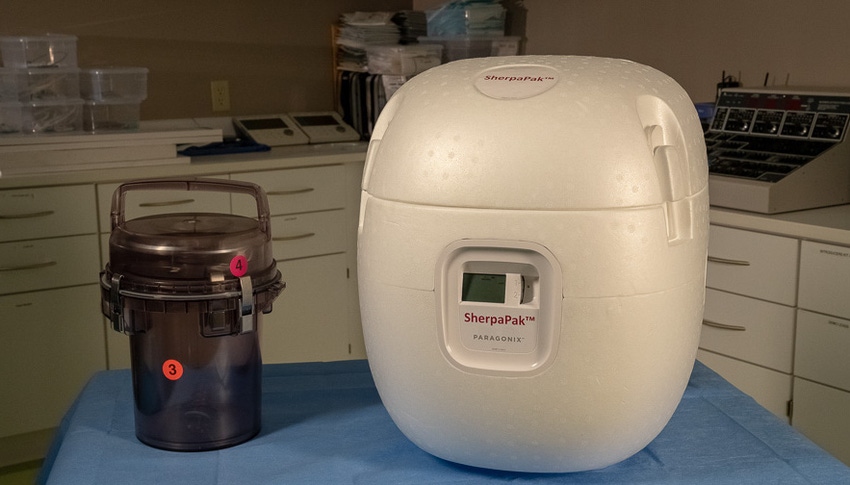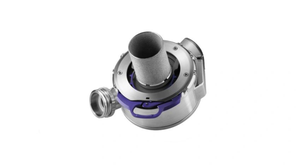The Braintree, MA-based firm’s Paragonix SherpaPak Cardiac Transport System also has clearance for the adult patient population.
December 20, 2018

Paragonix Technologies is hoping to offer a more effective way of transporting transplant hearts to pediatric patients. The Braintree, MA-based company said it has received clearance from FDA for a design enhancement allowing the Paragonix SherpaPak Cardiac Transport System (CTS) to be used with small and pediatric donor hearts.
“Paragonix SherpaPak, is designed to preserve the heart muscle and the entirety of the heart in transit from the point of donation to the point of implant into the recipient,” Bill Edelman, CEO and Chairman of Pargonix, told MD+DI. “It does it by virtue of sustaining a vary narrow temperature band, which is essential for myocardial preservation.”
Starting in Q1 2019, Paragonix SherpaPak CTS will now be shipped with heart connectors covering most aortic diameters, permitting the anchoring of various size hearts including small pediatric hearts to its proprietary suspension system for improved donor heart transport.
“The current standard of care irrespective of age, is literally an ice chest with slushed ice,” Edelman said. “The hearts that are donated polyethylene bags and filled with preservation fluid then sandwiched between bags of ice.”
Previously the company received clearance from FDA to transplant the adult hearts. The firm also has CE mark to transplant hearts in adult and pediatric patients.
“The difference [with the pediatric version of the device] comes from the need to hold the heart and suspend it inside the Sherpa sterile canisters,” Edelman said. “The way that occurs is there is an aortic root cannula that holds the heart. The diameters of those cannulas that open, grab, and hold the aortic root have to be reduced to in order to accommodate the smaller hearts attributed to this pediatric population.”
The device has the potential to impact a large market. With over 6.5 million Americans currently diagnosed with heart failure (HF), 10% of which are diagnosed with end-stage heart failure, there is a persistent need to provide end-stage heart failure support to this expanding population. Estimates of the prevalence of symptomatic HF in the general European population are similar to those in the U.S. In 2017, more than 2,000 donor hearts were transplanted in Europe.
"Our goal is to establish a new standard of care for donor organ preservation and with our FDA cleared and CE marked devices for both heart and kidney organ stage and transport, we are on our way to make this a reality,” Edelman said in a release.
About the Author(s)
You May Also Like


.png?width=300&auto=webp&quality=80&disable=upscale)

